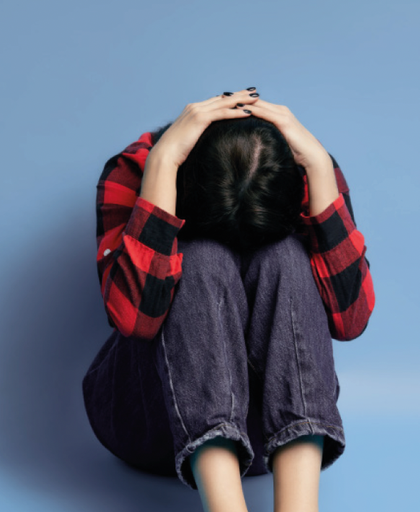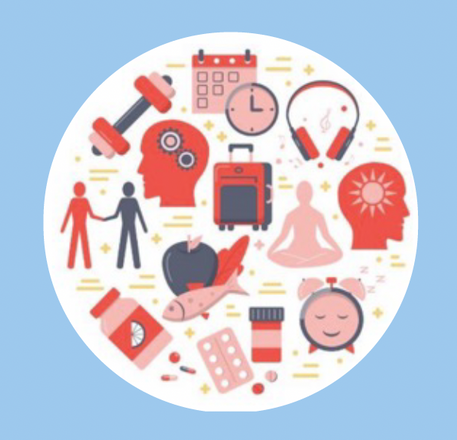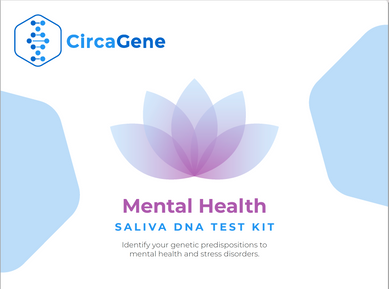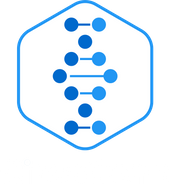
Every once in a while, it’s normal that you might experience a sad or upsetting event. After receiving a bad grade, loosing someone near to you, remembering something traumatic, or even if it’s just a rainy day. However, after the circumstances change, we tend to feel better, and that depressed feeling dissipates. It has even been suggested by a number of scientists that feeling low or depressed at least for short periods, might be an evolutionary adaption and it’s therefore normal to experience these feelings after certain events (Hendrie, C et al., 2009).
Having said this, clinical depression is more complex than that. Clinical depression is a medical disorder characterized by a low mood and/or loss of pleasure in most activities, feeling guilty and worthless for at least two weeks (WHO, 2019). The key difference being the prolonged nature of the depression, which is different to when we might momentarily feel sad or upset. This state of mind can majorly interfer with
daily activities, such as sleeping, getting out of bed, taking a shower, eating and our capacity to socialize. Adding to this, the incidence of depression is on the rise with the number of people diagnosed with this illness increasing by a staggering 18% between 2005 to 2015 (WHO, 2017). This increase in prevalence is putting a huge strain on public health services, work forces and families, with mental health problems costing the UK economy almost 35 billion pounds last year (Centre for Mental Health, 2017). Furthermore, if depressive symptoms persevere and continue to worsen over long periods without treatment, depression in its most progressive form can lead to suicide, a tragic reality which is linked to over 700,000 deaths a year globally (WHO, 2021). It is apparent that despite the increase in mental health awareness over recent years, that depression and similar mental health disorders continue to be a huge burden on society, and there needs to be a greater understanding amongst the population about this disease and how to prevent it.

Nowadays, clinical major depression is the second leading cause of disability globally amongst young adults (WHO, 2019). Worldwide, it affects more than 260 million people without age, ethnicity, or gender preference (WHO, 2019). Furthermore, due to the fact that depression (along with many neurological disorders) is a subjective condition to diagnose, people tend to live without the appropriate treatment for a number of years. On average, it takes over 10 years for someone to seek help, due to the lack of accurate diagnostic tools and social stigmas (NIMH, 2018). This shocking statistic in particular, illustrates the size of the problem were facing, with people unable to reach out and seek ample treatment options quickly, it’s difficult to imagine a world where depression isn’t as prevalent as it is today.
Having said this, depression doesn’t have to be an inescapable condition, sometimes it’s just matter of time, or a change of perspective alongside the right help can be all it takes to cure people of this debilitating illness. Due to its recently increased prevalence, depression has become a focus point for pharmaceutical research and there is now a broad range of therapeutics available. Resulting in around 65% of people who are treated with antidepressants seeing a positive improvement in their depressive symptoms (NHS, 2021). Furthermore, innovative technologies are still investing in developing novel tools to understand depression and personalize its treatment within an area called pharmacogenomics (Shadrina, et al, 2018). Whereby researchers are potentially able to utilise the exact genetic profile of a depressed patient to assign them with the perfect antidepressant which is right for them. Future advances in these technologies will hopefully make a huge impact in the depression epidemic, by dramatically increasing the number of desired health outcomes following treatment.
Different individuals experience clinical depression in different ways as a result of contrasting genetic, environmental and lifestyle factors. Meaning that the exact pathology of the depression between individuals can be different, and so a range of medications are required to try and address these. Selective serotonin reuptake inhibitors (SSRI’s) are the most frequently used antidepressant medication, and they work by increasing the volume of the mood regulating molecule serotonin within the brain. Selective noradrenaline reuptake inhibitors, which are also a popular antidepressant therapeutic, work in a similar fashion except they act on another molecule that is thought to be dysregulated in depression, noradrenaline. Due to the minor differences in efficacy between the common antidepressants, the precise drug should be chosen depending on the patients existing therapy, suicide risk and previous response to antidepressant therapy (BNF, 2021). Finding the right medication and therapy that suits you is a great challenge but also the best way to combat this condition. Outside of therapeutic treatment options, making lifestyle changes and keeping a journal of your feelings is also helpful (Mind.uk, 2021).

Studies have shown that exercise and a healthy diet are a good strategy to implement in order to prevent depressive episodes (North, et al., 1990). These preventative measures summarised in Figure 2 are arguably as important as our therapeutic tools, if we are going to effectively reduce the prevalence of this illness.
It is apparent, that now more than ever we are experiencing the full force of a depression epidemic, meaning it’s pivotal we continue to raise awareness around this highly prevalent and immobilising illness. Things can get tough when depression hits your life, but with the appropriate therapy, support and medication (if required) things will steadily improve and eventually things will get better. Talking to someone, remembering you are not alone and seeking for self-acceptance is the best way to start this journey!

Our research has demonstrated that there is a relation between genetic markers that can cause risk of mental health symptoms. Buy your kit and find the aswer.
Excellence, N. (2021). Antidepressant drugs | Treatment summary | BNF
content published by NICE. Retrieved 8 October 2021, from https://bnf.nice.org.uk/ treatment-summary/antidepressant-drugs.html
▶ Hastings, R. S., Parsey, R. V., Oquendo, M. A. & Mann, V. A. a. J. J., 2004. Volumetric Analysis of the Prefrontal Cortex, Amygdala, and Hippocampus in Major Depression. Neuropsychopharmacol, 29(https://doi.org/10.1038/sj.npp.1300371), p. 952–959.
▶ Hendrie, C., & Pickles, A. (2009). Depression as an evolutionary adaptation:
Implications for the development of preclinical models. Medical Hypotheses, 72(3), 342-347. doi: 10.1016/j.mehy.2008.09.053
▶ Kuner, A. T.-T. &. R., 2019. A common ground for pain and depression. Nature, 22
(https://doi.org/10.1038/s41593-019-0499-8), p. 1612–1614.
▶ Liu, W. et al., 2017. The Role of Neural Plasticity in Depression: From Hippocampus to Prefrontal Cortex. Neural Plast., 6871089(doi: 10.1155/2017/6871089). Mind.uk, 2021.
▶ Mental health at work: The business costs ten years on | Centre for Mental Health. (2021). Retrieved 8 October 2021, from https://www.centreformentalhealth.org.uk/ publications/mental-health-work-business-costs-ten-years
▶ Mind.uk. [Online] Available at: https://www.mind.org.uk/ [Accessed July 2021].
▶ NIMH, 2018. National Institute of Mental Health. [Online] Available at:
https://www.nimh.nih.gov/health/topics/depression/ [Accessed July 2021].
▶ North, T. C., McCullagh, P. & Tran, Z. V., 1990. Effect of exercise on depression. Key studies in sport and exercise psychology, Issue PMID: 2141567, p. 258–284.
▶ Overview - Antidepressants. (2021). Retrieved 8 October 2021, from
https://www.nhs.uk/mental-health/talking-therapies-medicine-treatments/
medicines-and-psychiatry/antidepressants/overview/
▶ Shadrina, M., Bondarenko, E. A. & Slominsky, P. A., 2018. Genetics Factors in Major Depression Disease. Front Psychiatry, 9(doi: 10.3389/fpsyt.2018.00334), p. 334.
▶ Suicide. (2021). Retrieved 8 October 2021, from https://www.who.int/news-room/
fact-sheets/detail/suicide
▶ Valdés-Tovar, M. et al., 2018. Circadian modulation of neuroplasticity by melatonin:
a target in the treatment of depression. The British Pharmacol ogical Society, 175(DOI:10.1111/bph.14197), p. 3200–3208 .
▶ WHO, 2019. World Health Organization - Fact Sheets. [Online] Available at: https:// www.who.int/news-room/fact-sheets/detail/mental-disorders [Accessed June 2021].
▶ (2021). Retrieved 8 October 2021, from https://apps.who.int/iris/bitstream/handle/
10665/254610/WHO-MSD-MER-2017.2-eng.pdf

COPYRIGHT © CIRCAGENE LTD ™ ALL RIGHTS RESERVED